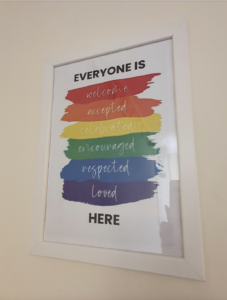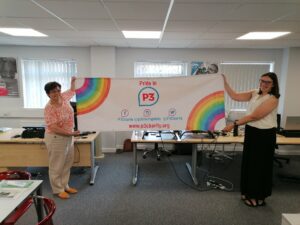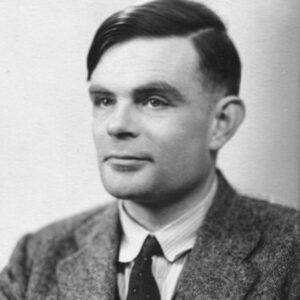Assumptions and microaggressions against the LGBTQ+ community are still very prevalent. This can be through assumptive language, non-inclusive paperwork, or heterosexist or gender-biased treatment. The concept of coming out, in itself, is not an isolated event and this in a large part is due to the ongoing assumption of heterosexuality (also known as heteronormativity or heterosexism). This creates a barrier to leap: people are repeatedly forced to challenge incorrect assumptions of themselves, which also brings those oh-so-familiar anxieties about negative reactions or changes in treatment. This would never be expected of someone who is cisgendered or heterosexual.
So many people are forced into a latent or semi-visible way of living, where they have precious few safe people or places just to be themselves. This is an uncomfortable and at times exhausting experience. But everyone can help by not making assumptions based on harmful, outdated, and inaccurate stereotypes and instead allowing and offering the space for people to be comfortable as themselves.
Be aware of how you may inadvertently be creating a harder path for people and be proactive in avoiding doing this. It is everybody’s responsibility to educate themselves if they encounter a gap in their knowledge. For example, instead of asking personal questions of someone, you could ask: “Could you point me in the direction of some good resources so I can learn more?”
I often find myself feeling very thankful for P3 and my teams for being such an inclusive and encouraging organisation for people to be themselves. They are among the few where I have genuinely felt safe in this regard. But this is also a legal right and there is still a lot of work to be done (this link to the most recent LGBT survey gives detail to just how much).
However, in happier reflections, I have personally found the number of safe places and people in my own life to be more now than ever. I also discovered at a recent visit to Shibden Hall (a National Trust LGBTQI+ historical treasure – oh and if you haven’t seen Gentleman Jack – do!) that I look great in a top hat!
P.S: Huffpost & the BBC have published articles around microaggressions against the LGBTQI+ community and coming out in the workplace if you’d like to read more.
***
In fact, I would like you to read more! First of all, please have a look here at how some of our teams at P3 have been marking Pride….


Nuneaton is holding a Pride picnic at Riversley Park on 3 July

Proud to show support

Pride balloons at Navigator Yiewsley (Patricia Ogundero)

A personal message of support and an exciting update
– see the shout outs below!
And now I’d like to talk about something else. You’ve seen my thoughts on how things are for LGBTQ+ people today, but historically, of course, things have been far worse. As Pride draws to a close, here’s the story of one of the geniuses of the last century and how he was oppressed for being gay: Alan Turing.

London, 1 July 1972. Activists walked together from Hyde Park to Trafalgar Square, chanting and holding signs aloft. It was the UK’s first ever Pride march and while there was a lot of work still to be done, it marked the beginning of an era of protest and change. Sadly, it was already too late for many people – such as Alan Turing.
Born in 1912, Turing was a mathematician and computer scientist. He is most famous for his codebreaking work during World War II, particularly in cracking the German code Enigma. Turing was also crucial in developing modern computers and artificial intelligence.
But none of that mattered when he was convicted of “gross indecency” in 1952 for his relationship with a young man named Arnold Murray. Gay intimacy between men was illegal at the time and Turing was forced to choose between prison or probation with chemical castration. He chose the latter and was made to take injections of artificial female hormones for a year, which had detrimental effects on him. Not only that, but his conviction cost him his job at the Government Communications Headquarters (though he also had an academic role that he kept). Turing died in 1954 of cyanide poisoning; an inquest returned a verdict of suicide, although his mother and some others believed it was accidental.
Campaigners eventually succeeded in having Turing pardoned in 2013 (when the Queen signed the pardon; she pronounced it officially the next year). This was the impetus for the Policing and Crime Act of 2017, sometimes called the Alan Turing law. It retroactively pardoned everyone in England and Wales who was cautioned or convicted historically for expressing their sexuality and identifying as LGBTQ+.
It is important to remember everything that has happened since Pride began 50 years ago. But Pride, too, came about as a result of the events that preceded it. This includes the tragic but groundbreaking life of Alan Turing: genius, codebreaker and father of modern computer science.
Thank you for taking time to read this blog post. I hope we can all go forward into a world where everyone is safe to be who they are.
Sarah 🌈